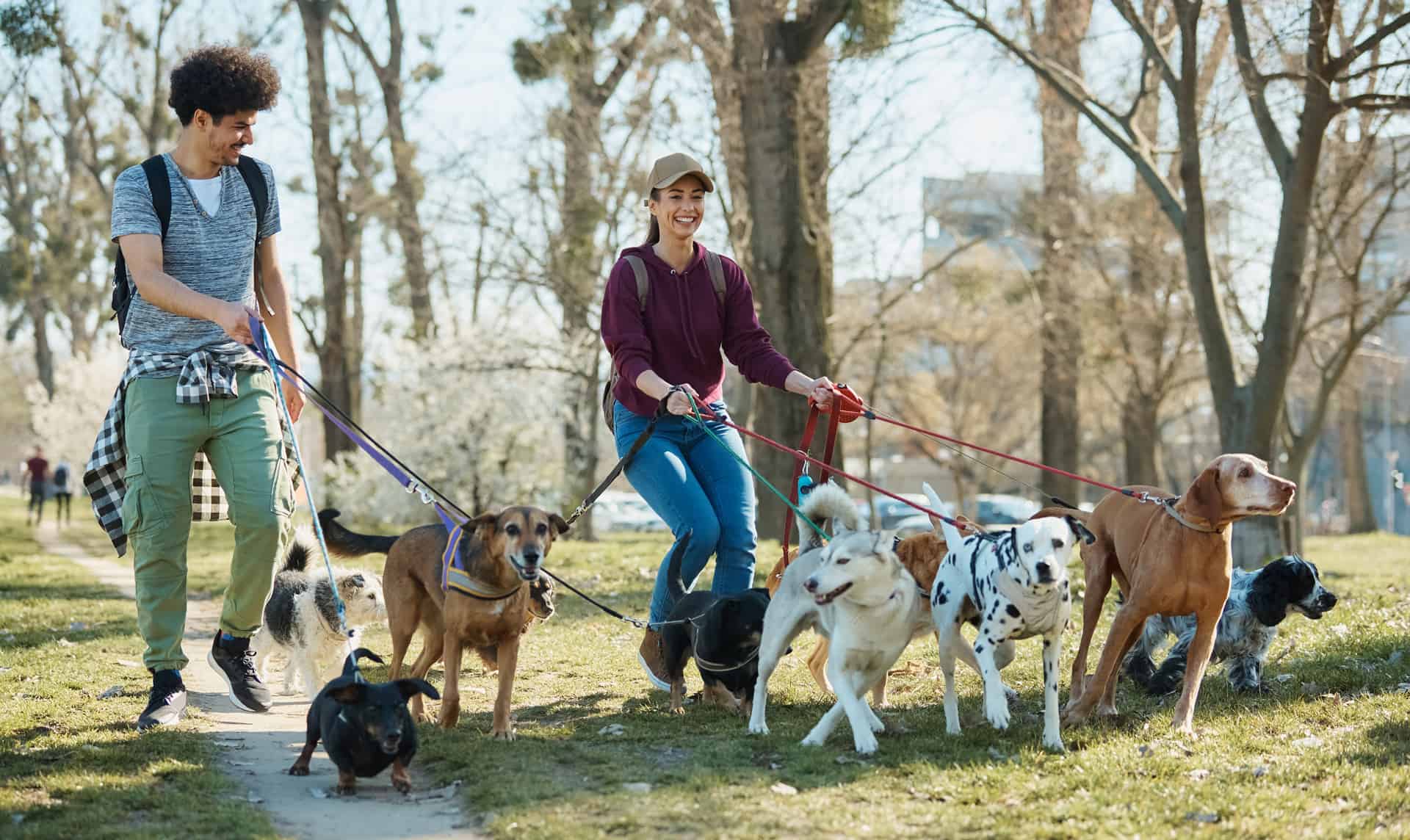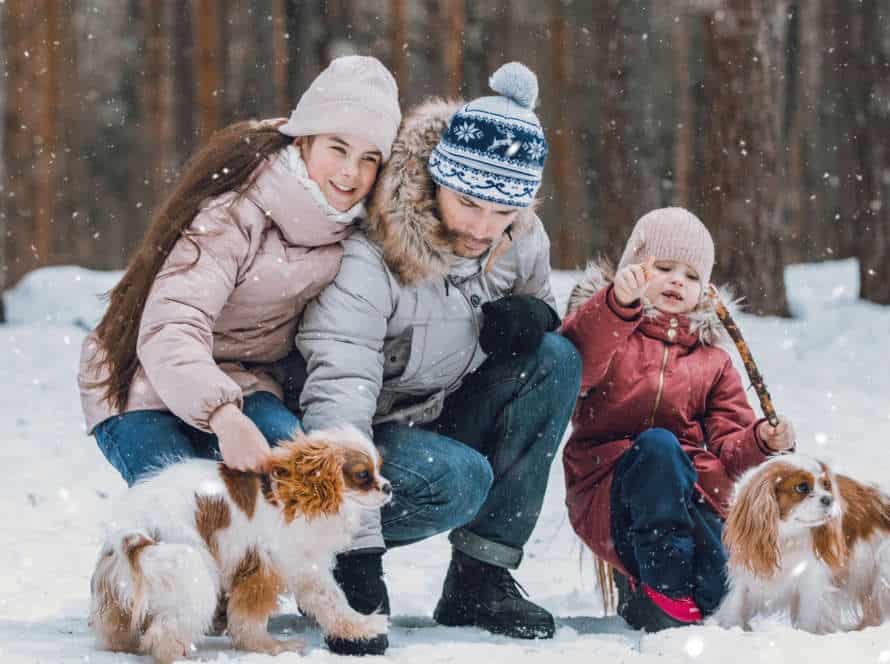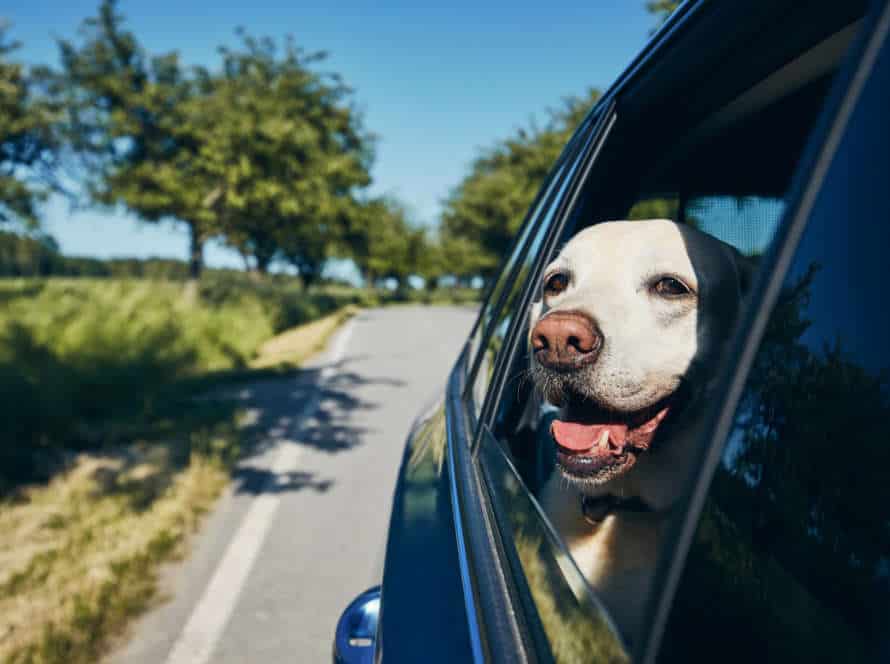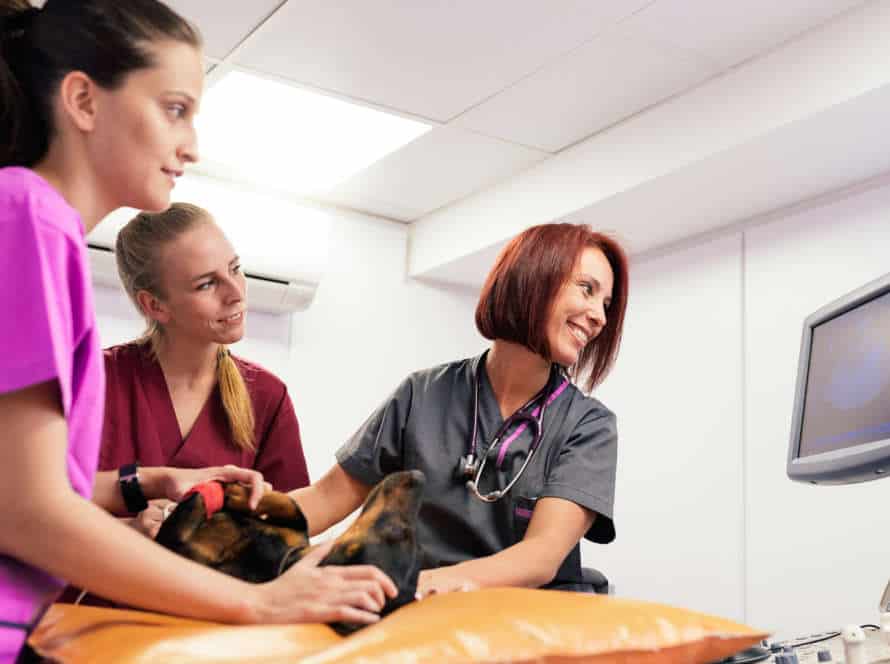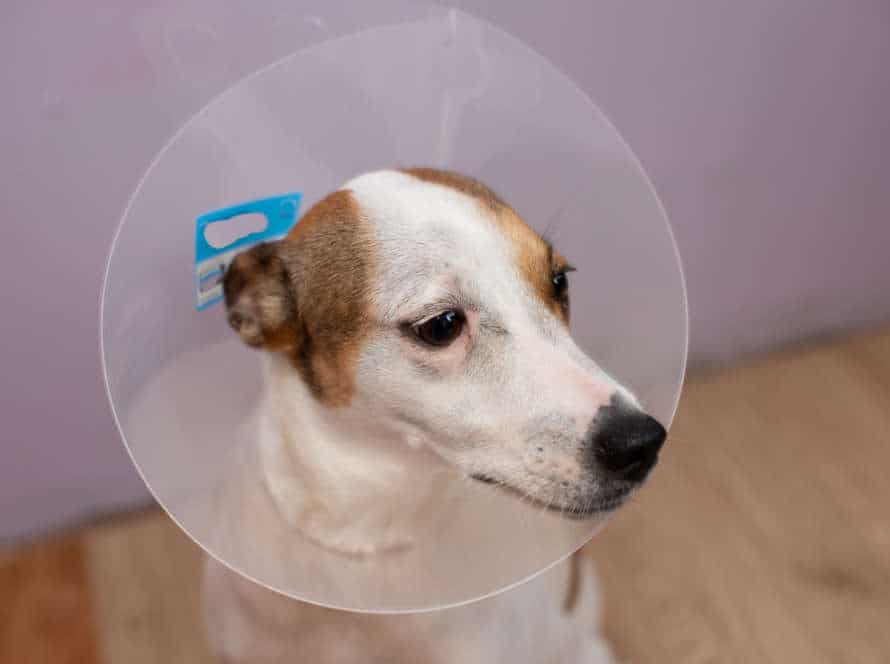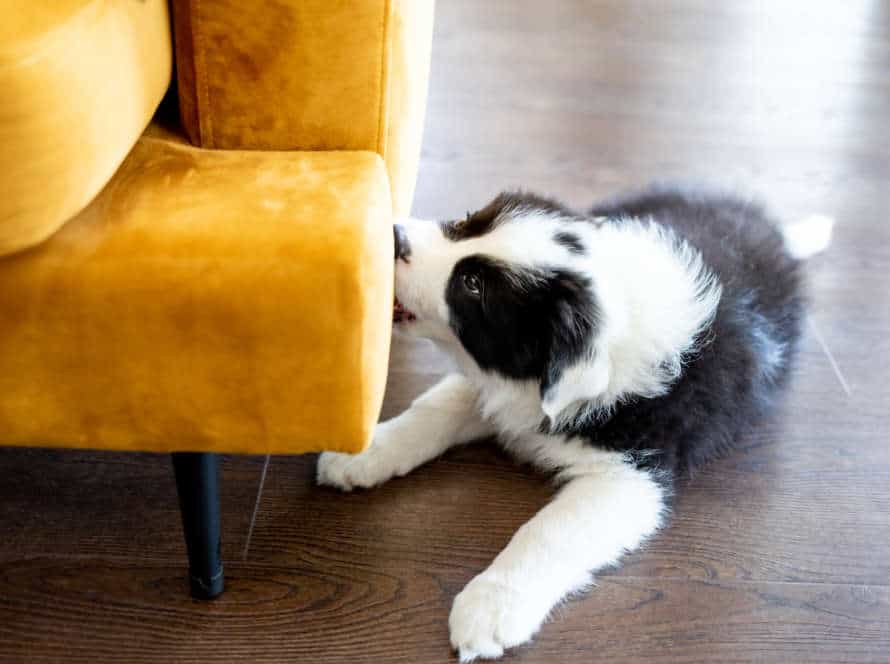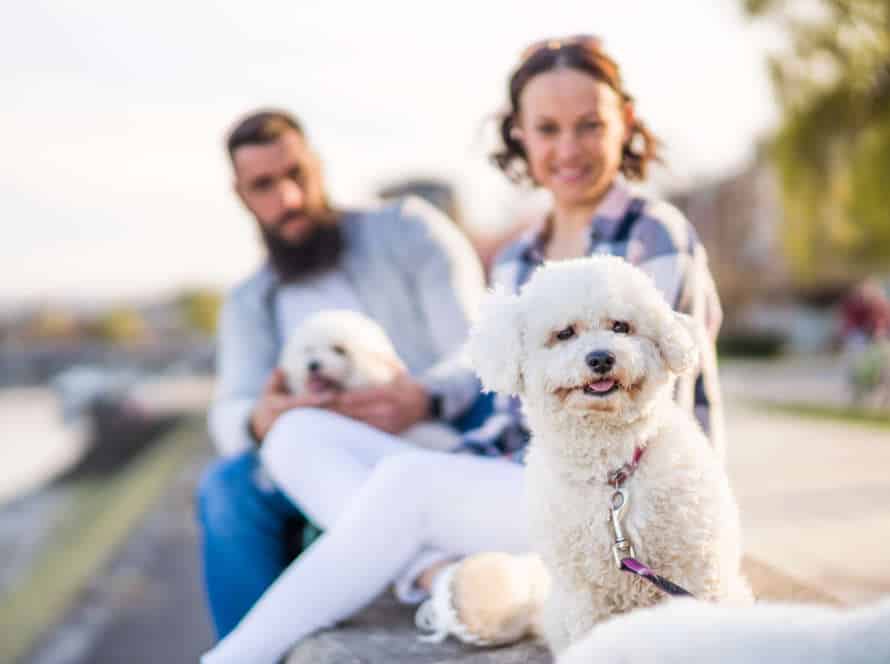The Benefits of Early Puppy Socialization
It’s essential to socialize your pup early on – it shapes their behavior and personality forever! Major advantages of early puppy socialization include:
- Socializing them in the first 3 months helps with better social behavior around other canines and humans.
- It helps them adjust to unfamiliar people, places, and events, lessening stress and making them more open to change.
- It reduces the chances of behavioral issues such as fearfulness, separation anxiety, and aggression.
- It helps them learn commands more quickly.
In conclusion, early puppy socialization is an important part of being a responsible pet owner. Pro tip: Get your pup into a puppy socialization or training class supervised by a professional.
Benefits of Socialization
Puppies socialized before 16 weeks? Proven better adjusted! It’s essential for their mental and physical development. Socializing early helps them be more confident, understand boundaries, and cope with new situations. Let’s explore the advantages of early puppy socialization!
Reduces fear and anxiety
Socialization is very important for puppies. It helps decrease their fear and anxiety. Exposure from 8-16 weeks is the key period for puppy socialization. This helps create new brain connections, helping them adapt and learn.
Meanwhile, puppies who miss out on this period may become fearful, anxious, and even aggressive. Here are some benefits of early puppy socialization:
- Lower risk of behavior problems like aggression, separation anxiety, and phobias.
- Easier to train & learn new behaviors.
- Gain more confidence & resilience.
- Have better social bonds & communication.
- Easier handling for vet & grooming.
In other words, early puppy socialization is an investment in your pup’s future health and happiness.
Improves overall behavior
Socializing puppies is a must for their growth. It gives them the chance to learn and get used to diverse people, animals, places, and activities. Here are some of the advantages of pup socialization:
- Fear and Aggression Reduction: Socializing correctly helps pups gain self-assurance and a good attitude towards novel circumstances. This reduces their fear and aggressive behavior.
- Greater Adaptability: Socialized puppies adjust better to changes in their environment and are less prone to worry and tension.
- Enhanced Training: Socialized puppies comprehend quicker and respond better to training due to their larger exposure to different stimuli.
- Improved Social Skills: Socialized puppies build up better social aptitudes, making them better friends for humans and other animals.
So, socializing a puppy is essential to give them a more satisfying and cheerful life.
Enables better social behavior
Early puppy socialization can help dogs have better behaviour in their later life. If you expose your pup to different people, animals and places during the 3-14 week developmental period, it can decrease the possibility of fear, anxiety and aggression issues in the future.
Benefits of socialization include:
- Improved social skills: Pups that are socialized young may become more confident and less scared around new people, creatures and settings.
- Better communication skills: Socialization can help puppies learn how to communicate better with other dogs, especially if there are multiple dogs at home.
- Improved health and wellbeing: Socialization helps puppies build a stronger immune system, better physical health and lowers the risk of behavioural problems in the future.
Pro Tip: Look for reliable puppy socialization programs near you so your pup can interact with new people and play with other dogs in a secure setting.
Ensuring puppies get socialization
Pups are bursting with energy and curiosity! For them to become great pets, they need to be socialized properly. Socializing is teaching pups to interact with other animals, people, and new surroundings. It’s very beneficial. With proper socialization, puppies will be relaxed in all kinds of situations and even make friends with other animals and people.
In this article, we’ll talk about the importance of early puppy socialization and how to give pups the socialization they need.
Find a reputable trainer or facility
Finding a trustworthy trainer or facility is essential for proper puppy socialization. Early socialization of puppies is important for them to grow mentally and emotionally. So, choose a trainer or facility that knows this and can provide the right environment and guidance.
The trainer or facility should have classes that introduce puppies to various places, people, dogs, and situations. The trainer should use positive reinforcement methods to encourage good behavior, and they should have experience with puppies.
When selecting a trainer or facility, check their qualifications, experience, and reputation. Ask for references and observe a class before enrolling your puppy.
Pro Tip: Early puppy socialization helps avoid future behavioral issues and produces an assured and well-balanced adult dog. Make sure to prioritize socialization when raising your puppy.
Utilize socialization apps
Socialization apps can help your pup get the socializing they need. You can find other pet owners, arrange meetups, and explore pet-friendly places.
Here are the great benefits of puppy socializing:
- Reduced aggression towards others.
- Easier to train with better behavior.
- Positive experiences and confidence.
Pro tip: Introduce your pup to people, animals, and environments during their socialization period. Use apps to find these experiences.
Start early and be consistent
Early and consistent socialization is key for puppies, which will give them lots of advantages in their later life. You should show your puppy to different people, creatures, and places from 3 to 14 weeks, their vital socialization period. The plan is to give them as many new experiences as possible in a positive and monitored way.
First off, take your pup to other vaccinated, well-socialized puppies. Also, let them meet kids, grown-ups, and seniors. Step by step, have them get used to various sounds, sights, and smells to help them adjust to new scenarios.
It’s essential to be dependable with socializing your pup. Make it part of your daily routine and reward them for good behavior. This will assist your pup to become a confident, well-adjusted dog, who can manage new situations easily.
Pro tip: Puppy socialization classes are a great way to make sure proper socialization exists, while also giving a safe environment for your puppy to learn and grow.
Socializing the puppy with
Puppy socialization is a must for their growth and health! Introducing them to the correct humans, animals, and situations can make them more confident and better suited to their atmosphere. This can even stop bad habits, like fear aggression, from appearing later in life.
In this piece, we’ll be looking at the value of early socialization for pups and what it brings.
Other puppies
Socializing your pup with other puppies is a must for them to reach their full potential. The benefits are clear: better social skills, less anxiety, and increased confidence.
When puppies socialize early on, they learn how to communicate and set boundaries, as well as form relationships with other pups. This helps reduce their anxiety in the future.
Plus, puppies that interact with others become more confident. They learn how to act in unknown situations and become less aggressive, meaning they’re friendlier towards other dogs and humans.
So, it’s essential to give priority to your puppy’s socialization with other puppies for their growth and development.
Other people
Socializing your pup is a must during the early stages of development. It offers several advantages. Here are some of them:
- It decreases fear and aggression when meeting strangers.
- It boosts their self-confidence and makes them friendly.
- Stress and anxiety levels are lowered, which leads to greater health and behavior.
- Pup has a positive experience with people and new places.
- Bond between pup and owner deepens.
To socialize your pup, try puppy classes, walking your pup around public places, and inviting family and friends to interact with your pup.
Different Environments
Early socialization of puppies is key for their growth and wellness. As part of this process, expose them to different environments. Here are a few:
- People: Introduce your pup to a variety of people – kids, men, women, and people of different races and ages.
- Animals: Get your puppy used to other animals, like dogs, cats, and smaller pets such as rabbits and guinea pigs.
- Places: Take your pup to places like parks, beaches, cars and pet stores.
- Sounds: Play sounds they may come across in daily life such as traffic, sirens, fireworks and thunderstorms.
By socializing your puppy in these different settings, they can become friendly, confident and well-adjusted adult dogs. Pro Tip: Start socializing your pup as early as possible, between 3-14 weeks. The critical socialization period ends at 16 weeks.
Training the puppy
Training a puppy is essential. Teaching basic commands is important, but socializing them is key! Socialization in early life will make sure your pup grows up to be a healthy and friendly dog. Let’s discuss the benefits of early puppy socialization and how to set up a routine for proper training.
Obedience training
Obedience training is a must for raising a friendly, well-mannered pup. Time invested early on yields many rewards. These include:
- Improved socializing: Introduce your pup to different settings, sounds and people. This will help them get along with other dogs and humans.
- Improved communication: Teach your pup basic commands like ‘sit’, ‘stay’, ‘come’ and ‘heel’. This will help them understand you better.
- Preventing behavior problems: Training your pup prevents barking, aggression and destructive behavior.
- Increased safety: Commands like ‘come’ or ‘stop’ will keep them safe from traffic or attacks.
In short, obedience training enhances the bond between you and your pup and provides security. Pro tip: Start with simple tasks such as potty training. Move on to more complex commands as your pup grows.
Toilet training
Toilet training is vital when raising a pup. Patience, consistency and positive reinforcement are needed. Here are some tips to help you:
- Set a regular eating schedule. This creates a routine for potty breaks.
- Take your pup outside to the designated potty area after meals, naps and playtime.
- Use a verbal cue such as “go potty” to link the word with the action.
- Reward with praise and treats after your pup succeeds in using the potty area.
- Monitor your pup closely during the training process. Never punish them for accidents. This can cause fear and confusion.
With effort, patience and reinforcement, your pup will learn toilet training fast!
Remember to always clean up after your pup. This prevents unpleasant smells and keeps the potty area clean.
Crate training
Crate training your pup is an absolute must for early socialization. It gives benefits to both you and your furry pal. It makes a secure, safe atmosphere – just like the dens wild ancestors sought out. It stops bad behavior, keeps your pup safe when you’re out and helps with house-training – teaching them to control their bladder and bowels. Here are the benefits:
- House-training and toilet training.
- Stops destructive behavior and chewing.
- Provides a safe environment when you’re out.
- Gives a sense of security and safety.
- Helps your pup travel, adapt to new places and situations.
With a bit of patience and persistence, crate training can be a great experience for both you and your four-legged friend.
Overcoming Socialization Challenges
Puppy socializing can be intimidating! Puppies depend on their environment for learning how to interact with people and other animals. Therefore, giving them the right socialization experiences is key. Early puppy socializing can offer lots of advantages. But it can also be difficult. Let’s find out how to manage these issues!
Slow and Steady Approach
The key for conquering socialization struggles and getting the most out of early puppy socialization is a slow and steady approach.
Here are some tips that can help:
- Start soon! Introduce your pup to new people, animals, and situations as soon as possible. This will help them become a happy dog.
- Take it slow. Don’t give too much in one go. Give them time to feel safe and okay.
- Be supportive. Use treats and compliments to make them see something new as something good.
- Be patient. Socialization doesn’t happen in one day. Don’t expect them to be an expert right away.
- Pro Tip: Join a class or work with a trainer to make sure the socialization process goes well and your pet is happy.
Gradual Exposure
Gradual exposure is key for pup socialization. It offers lots of benefits for your furry pal’s growth and behaviour.
It involves exposing your puppy to people, pets, and different surroundings in a good and controlled way. Not too much, not too little.
This encourages exploration, curiosity and learning, which are major for a pup’s physical and emotional health.
Gradual exposure makes your pup more confident, adaptable and less reactive to new things. This reduces the chance of behavioural issues later.
You must stick to a safe and gentle gradual exposure plan. Respect your pup’s pace and always make sure they’re safe and comfy.
It takes effort and time, but it’s worth it. Even if you start late, it’s never too late.
Pro tip: Begin with easy and low-stress stimuli. Then work up to tougher ones, giving lots of positive reinforcement and rewards. So your pup links positive experiences to new situations.
Building Positive Associations
Building positive associations with puppies is a must. It has great benefits for both dogs and their owners. When puppies get used to various stimuli in a positive setting, they learn to like these experiences. This can help to stop fear or aggression when they are older.
To help with this, there are some things you can do:
- Allow them to be around other dogs and people in a secure environment.
- Slowly give them new places, sounds and smells and reward them with treats, toys and attention when they respond in the right way.
By doing these things, your puppy will grow up to be content and confident. It also makes life easier and more enjoyable for both you and your pet.
Frequently Asked Questions
1. Why is it important to socialize puppies at an early age?
Early socialization helps puppies develop confidence, learn important social cues, and reduces the risk of behavior problems later in life.
2. What are some benefits of puppy socialization?
Puppy socialization helps puppies learn to interact with other dogs and humans, reduces the risk of aggression and fear, and helps build their confidence and resilience.
3. What is the best time to start socializing a puppy?
The critical period for puppy socialization is between 3 and 14 weeks of age. It is important to expose puppies to new people, animals, and environments during this time.
4. Can I socialize my puppy on my own?
While it is possible to socialize your puppy on your own, it is recommended to enroll in puppy socialization classes. These classes provide a structured environment for socialization and are led by experienced trainers who can guide you through the process.
5. What if my puppy is scared or overwhelmed during socialization?
It is important to go at your puppy’s pace and not force them into situations they are scared of. Break the socialization process into small steps and gradually build up their confidence. If your puppy is consistently scared or overwhelmed, seek the advice of a professional trainer.
6. What happens if I don’t socialize my puppy?
Puppies that are not properly socialized are at an increased risk of developing behavior problems, such as aggression and anxiety. They may also have difficulty adjusting to new environments and experiences later in life.

